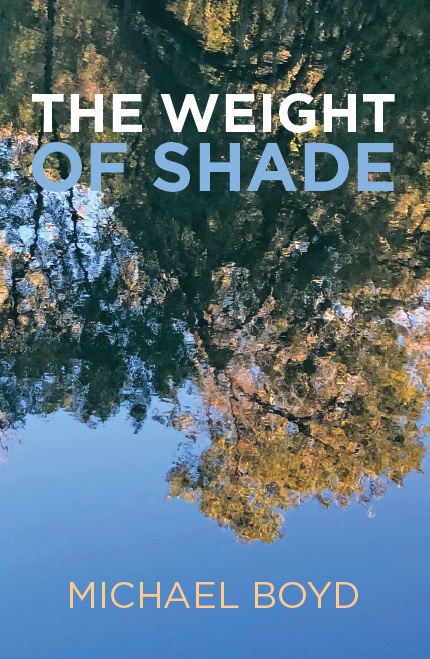
Read the full article and interview by Liani Jansen van Rensburg here:
Skryf is vir debuutskrywer Mike Boyd ’n wilde ding: ‘Vergeet soms van die reëls’



Read the full article and interview by Liani Jansen van Rensburg here:




Just before going to sleep one night, I read Dawn Garisch’s story Knock, Knock, which is about an encounter between a man and woman who are unknown to each other and meet randomly when the woman knocks on the man’s door asking for sugar.
The nearest restaurant is two hours away, and they have both driven somewhere isolated in a quest for peace and a way to escape their everyday lives.
The story lulled me to sleep with its sweet melody of this serendipitous encounter and its satisfying conclusion.
What Remains is novelist Dawn Garisch’s powerful and compelling debut collection of short fiction. Not all the stories lulled me to sleep, though. Some left me a little uneasy, in a good way, mulling over and digesting the events of the stories.
Here are stories about marriages barely holding together by the crumbling remains of a long-ago glue that’s losing strength. Here are women who have lost husbands or are coming to terms with the realisation that the unions they stayed in so long weren’t quite as glorious as hoped. A man steps outside his life to take an unhealthy interest in other people, another man contemplates a dalliance with another woman, and a married man falls in love with another man …
Continue reading: News24

Dear Dawn Garisch
I have just finished your book of short stories, What Remains. I am so sad. I am already missing my nightly fix of meetings with your panoply of thinking, suffering, worrying, reflective, ordinary-not-ordinary characters. Of stepping, albeit briefly, into their exquisitely word-painted lives, their shocking encounters, intriguing histories – in some cases deep into their hearts, their troubled psyches and relationships, in others, fathoms deep into their upbringings to touch on what makes them tick. Sometimes I could piece together the puzzle of their nostalgic pasts, and sometimes, at the endings, I was left wondering about their futures – their next steps, like sitting on the edge of a cliff …
Continue reading: Woman Zone
The first review is in. The book will hit our bookshelves next week!
… It is an unsettling series of stories, as death is, and could be considered a book of poems rather than prose; rare is the paragraph that does not contain an arresting image or original turn of phrase. It is a world in which, refreshingly, expectations are not met:
“My doctor said I should watch my diet and suggested a pacemaker. I ignored him. And my son. Who I knew was hoping to one day have it out with me. I had been avoiding serious conversations with him since he started showing an interest in them at age thirteen. There would no doubt be consequences. And now, hospital-bound, tied to a bed by tubes, I can no longer escape him.” – Extract from ‘She said she was from the future’.
And yes, everyone does die, and not in a climactic Game of Thrones sense, despite the subtitle: A series. The drama here is internal, muted. Often it is not so much that someone – mostly the narrator – dies, as life having escaped, or at the very least been let go of …
Read the entire review here: The Critter



You’ve been here before. Confinement in close quarters after a disaster not of your making sounds pretty familiar, but Nick Mulgrew’s claustrophobic new novel, Tunnel, isn’t obviously about the pandemic.
It deals instead with the fallout after some unnamed but probably nuclear events that collapse the Huguenot Tunnel and render the surrounds uninhabitable. This terrifying prospect must surely have occurred to anyone travelling in carbon-monoxided convoy through the intestines of the Du Toitskloof mountains. How does this concrete hold back the weight of the mountain? What if it all falls in? Who would come? And how long would that take? And also, crucially for this novel, would it be worth surviving?
Set in a South Africa that’s the same but different, Tunnel plays with the idea of inversion. There’s a South-West and a Caprivi, and there are workers’ compounds and bush cops and baboons — but not as we know them. The day the action takes place is March Day, and all travellers need permits. Then the world goes dark.
After the characters’ initial panic, they find their space literally shrunk and the tunnel fast becomes “the inside-outside”. Their hell descent must continue before they can eventually find their way to fresh air and the elegiac upswing of the ending …
Continue reading: Sunday Times
Elton Baatjies is a tour de force. It is a carefully crafted book and its temporal sense of time and location are brought to life beautifully.
Elton Baatjies is based on the story of Norman Simons who stalked and killed boys on the Cape Flats between 1986 and 1995. Dubbed “the station strangler”, Simons is thought to have been responsible for sodomising and strangling 22 boys. The evidence at the time could only link him to the death of one, 10-year-old Elroy van Rooyen. Simons was a schoolteacher, which made his arrest particularly shocking.
Elton Baatjies is set in the Elgin Valley, about an hour’s drive from Cape Town. The story opens with Elton taking up a job as an English teacher at a local school. The community is in uproar because six boys have been raped, murdered and dumped down the side of the mountain …
Continue reading: Daily Maverick


John Maytham reviews Elton Baatjies by Lester Walbrugh:

Listen to the full review here: Book Review with John Maytham



The Other Me is fast-paced, lively and with convincing characters who come, go and come again at Lolly’s bidding.
It will have you mesmerised and wanting more; to see the next mess she gets into and more importantly, how she gets out of it.
Lolly is resourceful, funny and captivating but also vulnerable, lonely and rejects violence.
Laugh at her, squeal and squirm, Lolly is a detestable character but in the best possible way.
It’s a delightful binge-worthy read.
Southern Suburbs Tatler
Read the entire review here: Southern Suburbs Tatler
David Whyte, the author of Consolations, reminds us that to be courageous is not necessarily to go anywhere or to do anything. It is to make conscious the things we already feel deeply and then to live through the unending vulnerabilities of its consequences. To be courageous is to seat our feelings deeply in the body and in the world, to be open to the unknown that begs us on. Boiling a Frog Slowly is an effervescent narrative of what happens when we dare to open up to the unknown, to move on.
Daily Maverick Life

